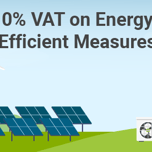- GreenMatch
- Blog
- Energy Price Cap
Energy Price Cap Skyrockets to £3,549 from October 2022
What is the Energy Price Cap?
Great Britain’s energy regulator, Ofgem, has recently announced that the energy price cap will increase to record levels of £3,549 from the 1st October 2022.
Around this time last year, the world was emerging from lockdowns and the UK was dealing with a rise of over 50% in energy costs. These shockingly high gas prices had led Ofgem to drive up the price cap by £139 in October 2021, from £1,138 to £1,277.
Unfortunately, last year’s price cap now pales in comparison to the current situation. Gas prices have continued to reach new records due to Russia slowly switching off gas supplies to the rest of Europe. This has resulted in the price cap almost tripling since October 2021.
Compared to the price cap of £1,971 that was introduced in April 2022, this new price cap translates as an 80% increase.
Ofgem’s average energy usage is based on a household of 2.4 people using 12,000 kWh of gas and 2,900 of electricity per year. This is 1,000 kWh of gas and 242 kWh of electricity per month. It’s important to note that this is just an average and your own consumption may differ.
How Will the Energy Price Cap Affect UK Homes?
According to a new report from York University, two-thirds of households in the UK, or 45 million people, will be suffering from fuel poverty by January 2023. This means the majority of the UK population will be struggling this winter, with many families having to choose between either eating or heating their home.
Ofgem have not released official price cap projections for January 2023 due to the current market being extremely volatile. However, there are predictions from Cornwall Insight that it may rise to £4,266 come the new year.
The Bank of England has also warned that inflation could hit 13% by the end of 2022 and remain around this level throughout 2023.
This dire situation calls for urgent action.
In May 2022, the UK government put forward a support package in order to address the rising cost of living. At the time, this support package accounted for almost 75% of the annual increase in energy prices anticipated. However, due to the unexpected increase of the energy price cap, this will no longer suffice. It would now cost an additional £18 billion to pay the same part of the bill increase that was anticipated back in May.
The new ECO+ scheme will be launched in Spring 2023.
Possible solutions may involve government-backed loans that allow suppliers to freeze prices before October or the introduction of a subsidised social tariff to support vulnerable households. Whatever the solution may be, the new Prime Minister will be urged to take immediate action as they come into office on the 5th September.
Curious About Switching to Renewables?
As mentioned above, energy prices are currently extremely volatile and unlikely to improve in the coming year. Many UK households are now considering switching to renewable clean energy due to its stability.
Switching to low carbon heating alternatives not only means that you’re reducing your carbon footprint, but it also makes you less susceptible to changing energy rates.
As the UK government is hoping to reach net zero emissions by 2050, there are currently multiple ways in which you can receive financial support, such as grants for solar panels and the Boiler Upgrade Scheme where you can receive up to £6,000 for a heat pump or biomass boiler.
As of April 2022, the UK government also introduced 0% VAT on energy efficient measures for the next 5 years.
Therefore, now is as good a time as ever to consider making home improvements and switch to renewable energy to save you from increasing energy prices.

Brontë is an experienced writer and editor for GreenMatch. Her passion for sustainability and renewable energy drives her to stay at the forefront of green-energy trends.
 We strive to connect our customers with the right product and supplier. Would you like to be part of GreenMatch?
We strive to connect our customers with the right product and supplier. Would you like to be part of GreenMatch? 





